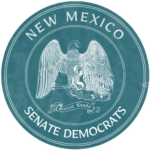Gambling compact with New Mexico tribes approved

SANTA FE (AP) – The New Mexico Senate on Wednesday approved a proposal that would allow a handful of Native American tribes to continue with their gambling operations.
The chamber voted 35-7 in favor of the proposed gambling compact, sending it to the House for consideration.
The Legislature faces a hard deadline when it comes to the gambling compact because current agreements with the Navajo Nation, the Jicarilla and Mescalero Apache tribes and Acoma Pueblo are set to expire at the end of June. Without a new compact, they would be forced to close their casinos.
Although it doesn’t have a casino, Jemez Pueblo has signed on to the proposed compact, and officials say other tribes could sign on as well.
Gov. Susana Martinez’s office has spent the past three years working with tribes to craft a new gambling compact that supporters say would bring stability to New Mexico’s gambling industry, protect jobs and increase revenues to the state.
“Certainly the art of good negotiation is the ability to make concessions. … Clearly, not everybody is happy, but that’s just the way it is,” said Sen. Carlos Cisneros, D-Questa. “In real life, we tend to understand that when you negotiate a contract, there’s going to be give and take.”
Some lawmakers had concerns about legal liability and voiced their opposition to gambling altogether. Others said they couldn’t support the measure because it would exclude the Fort Sill Apache tribe, which wants to build a casino on land in southern New Mexico that was put into federal trust in 2002.
Under a provision in the compact, tribes wanting to put a casino on land acquired after 1988 would have to negotiate separately with the state.
Sen. Clemente Sanchez, a Grants Democrat who chairs the compacts committee, said the proposed compact would increase revenues to the state during the next two decades beyond what existing compacts would offer.
Tribes that operate casinos in New Mexico reported more than $731 million in net winnings in 2014. Net winnings are the amount wagered on gambling machines, less the prizes won on those machines and regulatory fees.
State officials say the tribes paid New Mexico more than $66 million last year under revenue-sharing agreements that call for the state to ensure gambling exclusivity for them in exchange for a percentage of net winnings.
Revenue sharing under the proposed compact would top an estimated $77 million in 2019, Sanchez said.
Tribal leaders have encouraged lawmakers to approve the compact before the Legislature adjourns March 21. The compact would then have to be approved by the U.S. Interior Department.
Navajo President Ben Shelly was among the tribal leaders who listened to Wednesday’s debate. He said thousands of jobs are at stake.

